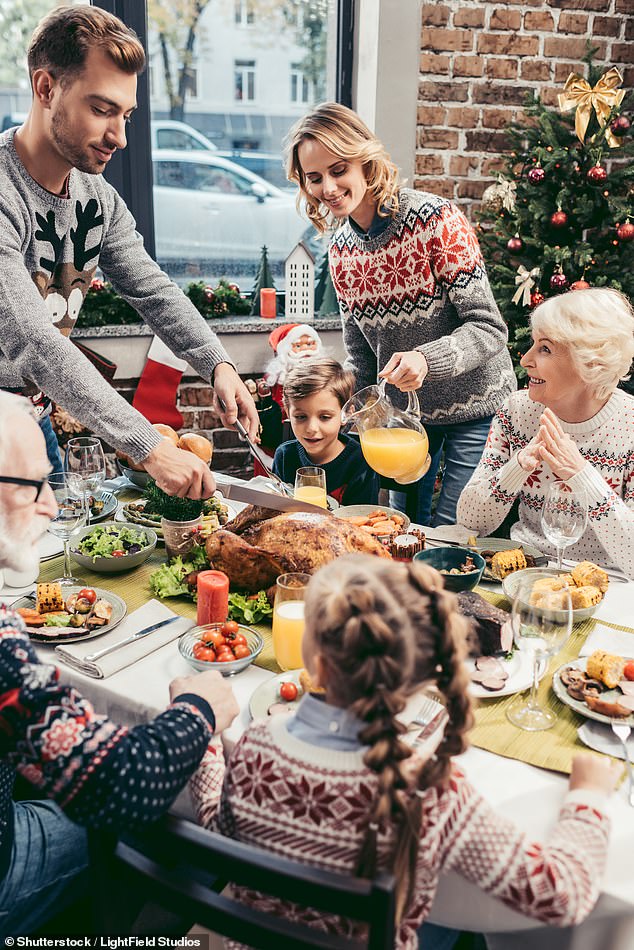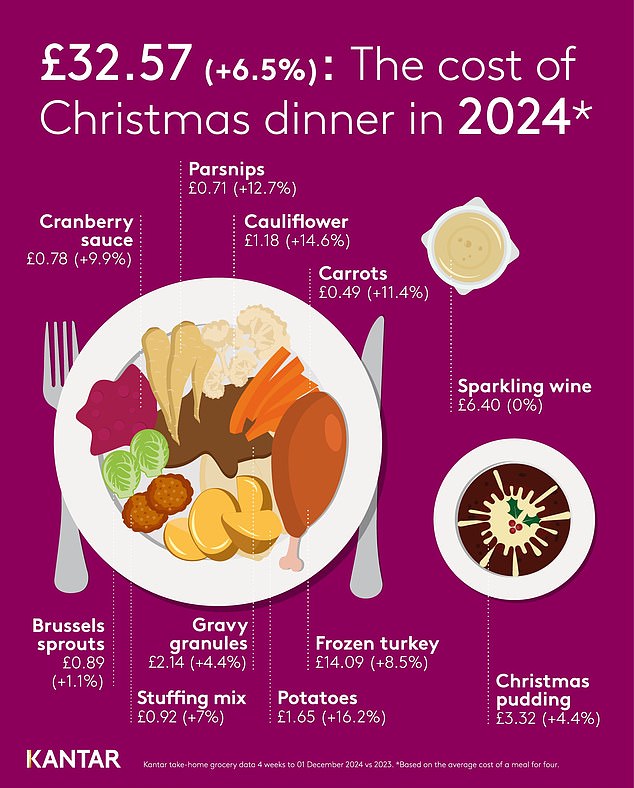Brits face paying more for their Christmas dinner this year, figures show.
According to analysis by research group Kantar, an average Christmas dinner for four people will cost £32.57, up 6.5 per cent on last year.
The increase is due to a sharp rise in the price of potatoes, which rise to £1.65 for four portions, a staggering 16.2 per cent jump on the previous year.
Potatoes are part of a general trend that has seen vegetable prices soar this year, with parsnips 12.7 per cent more expensive (71p) and carrots 11.4 per cent (49p ). The price of frozen turkey has also risen 8.5 per cent to £14.09.
The only thing on our plates that hasn’t outpaced food inflation (which was 1.9 percent) is Brussels sprouts, which are only 1.1 percent more expensive than last year, Kantar said.
But it was good news for fans of sparkling wine, which was the only product that did not increase in price.
The increase in the total basket is significantly higher than headline grocery inflation of 2.6 percent, which rose again from 2.3 percent in November, according to Kantar.
Despite rising prices, supermarket sales are expected to exceed £13bn during the four weeks of December for the first time.
An average Christmas dinner for four people will cost £32.57, up 6.5 per cent on last year, according to analysis by research group Kantar.
Sales of assorted sweet biscuits and cheese crackers doubled in November compared to the previous month, while 8 per cent of shoppers bought a Christmas pudding.
The proportion of spending on premium own-brand products reached 5 percent in the last four weeks and is expected to rise to almost 7 percent in December, Kantar said.
Fraser McKevitt, head of retail and consumer insights at Kantar, said: “Monday December 23 is likely to be the busiest day for supermarkets this year, although there are clear signs that shoppers are already stocking their cupboards.”
“Many of us take the opportunity to treat ourselves this time of year and retailers are launching seasonal product lines to help us celebrate in style.”
Meanwhile, promotional sales hit 30% in November, the highest since Christmas last year and boosted by deals accessed through supermarket loyalty cards, as shoppers opted for festive treats such as champagne, wine and spirits.
Tesco, Britain’s largest supermarket, achieved its highest market share since December 2017, reaching 28.1 percent, up from 27.4 percent in 2023, as its sales grew by 5.2 percent in the 12 weeks until December.
Sainsbury’s share rose 0.3 percentage points to 15.9 per cent, and spending at its checkouts was 4.7 per cent higher than last year.
McKevitt added: “The number of different retailers we visit in the run-up to Christmas is higher than at other times of the year, including broader high street brands such as M&S.

Despite rising prices, supermarket sales are expected to exceed £13bn during the four weeks of December for the first time in history.
“Just under one in three households, 32 per cent, bought food, drink and other groceries to keep at home at M&S during the 12 weeks to December 1 and, if you look at grocery sales alone, the spending at M&S increased by 10.4 per cent.”
Lidl was the fastest growing traditional grocer, with sales rising 6.6 per cent, while spending at Morrisons rose two per cent to 8.6 per cent of the market.
Waitrose grew slightly ahead of the market, with spending rising 2.6 per cent to maintain a 4.4 per cent share, and spending at Aldi growing 2.1 per cent to give the discounter the 10.3 percent of the market.
The Co-op claimed 5.5 per cent of the market and Asda has a 12.3 per cent share.


